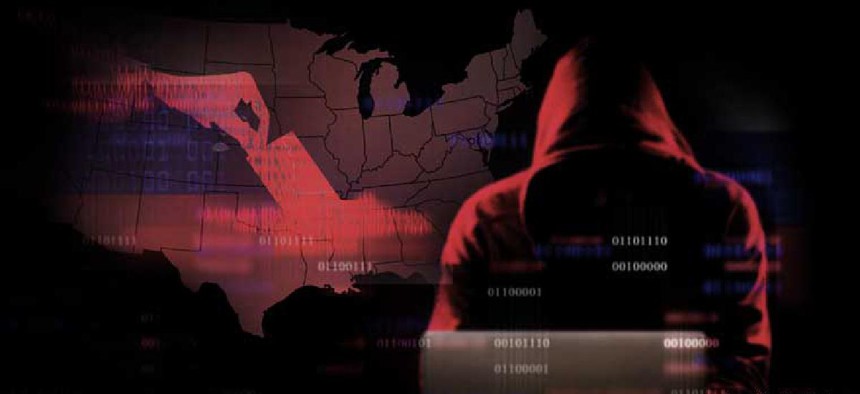2020 election security top goal for NSA, Cyber Command

Gen. Paul Nakasone, who heads both National Security Agency and U.S. Cyber Command said “safe, secure and legitimate 2020 elections” is his No. 1 objective.
“Safe, secure and legitimate 2020 elections” is the top goal of Gen. Paul Nakasone, who heads both the National Security Agency and U.S. Cyber Command.
Speaking at an Association of the U.S. Army virtual event on July 20, Nakasone said the plan to secure the November elections is to build on lessons learned from the 2018 midterms so the nation’s cyber experts will "know our adversaries better than they know themselves."
"2018 was a really remarkable year," Nakasone said, "because at that point we had well-trained and well-led forces at U.S. Cyber Command and NSA come together with the right authorities and policies and also match with this idea of having an organizational construct."
Now, he said, NSA and CyberCom will look to "broaden partnerships" with universities that are researching how social media and influence operations impact elections and respond accordingly when adversaries attempt to interfere.
However, the economic recession caused by the pandemic has hit state and local government budgets particularly hard, challenging their ability to combat election interference without additional funding. According to the Bureau of Labor Statistics, state governments shed 25,000 jobs in June, while overall government employment is down 1.5 million jobs from levels reported in February.
Some election jurisdictions are redirecting federal funds originally designed to bolster security to cover new costs in other areas of election administration. In a July 20 letter to House and Senate leadership, more than 30 former federal officials called on Congress to include substantial new funding to state and local governments in the next coronavirus relief package to deal with the pandemic and defend against potential foreign interference in the upcoming elections.
"Bolstering and securing this infrastructure will require more staff, supplies and technology. And this increased need for resources is coming at a time when many government budgets are facing a revenue crisis," the former officials wrote.
Congressional Democrats have been calling for increased aid to the states during negotiations for pandemic relief bills, but those efforts have so far been blocked by Senate Republicans. Congressional sources told Axios July 19 that the latest draft of the Senate bill does not include additional funding for state and local governments to deal with the pandemic or elections.
This article was first posted to FCW, a sibling site to GCN.






